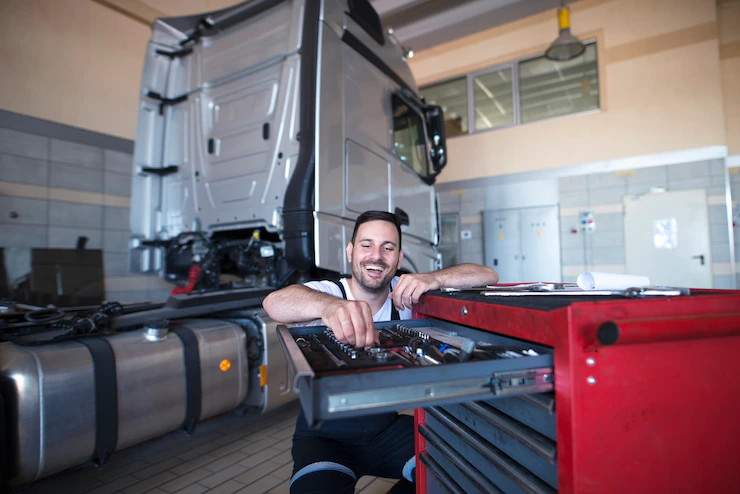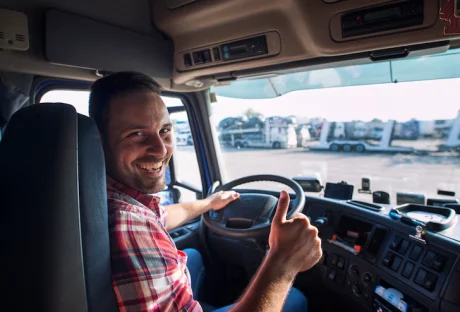Large trucks can be extremely dangerous on the road. Therefore, truck drivers and trucking companies must follow certain rules to protect themselves and others.
The safety regulations are usually determined by the Federal Motor Carrier Safety Administration (FMCSA); however, local and state agencies may have additional rules.
If you’re a trucker or you’ve been in an accident with a truck driver, it’s important to know which safety rules trucking companies have to follow in case you need to take your accident case to court.
Getting into an accident is stressful, and having to contend with trucking companies can worsen the situation. So you can avoid this type of situation by simply applying the safety regulations.
Let’s have a look ‘what is federal motor carrier safety regulations.’
Contents
What Are The Federal Motor Carrier Safety Regulations?
If you’ve been injured in a wreck involving a large truck in the South Bend area in Indiana, you need a truck accident lawyer in South Bend to help you build a personal injury case.
You’ll need to submit all forms of evidence to your lawyer, including medical records and bills, proof of lost wages, costs associated with the accident’s aftermath, pictures, and written witness statements that will provide more insight into who was at fault for the accident.
Having a lawyer representing you is essential when you’re going up against a trucking company. The trucking company’s insurer will try to give you the lowest settlement possible, and an experienced attorney can help you receive a fair settlement.
But before you go against a truck driver or their company for causing the accident, you need to know what rules they should have followed to prove that they didn’t.
Here Are Three Main Regulations You Should Be Aware Of What Are Federal Motor Carrier Safety Regulations
Overview:
- Hours Of Service Rules
- Regulations For Cargo And Weight
- Regulations Pertaining To Vehicle Maintenance
1. Hours Of Service Rules

Safety regulations on hours of service restrict the number of hours truckers can spend actively driving. When driving hours are limited, this lessens the chances that drivers will be drowsy and lose control of their vehicles.
Studies have shown that drowsy driving affects the body and motor system like drunk or intoxicated driving.
According to the Department of Transport’s regulations, truckers are only allowed to drive for 11 hours at a time. This limit is in effect only if the trucker has been off duty for at least 10 hours before driving. After a trucker has been driving for up to 14 hours, they must take a break.
Truck drivers have to take short breaks in between drives as well. Drivers who don’t follow these rules are more likely to drive drowsy, which increases the chances of truck accidents.
Indiana truckers must also follow all federal laws regarding HoS and state laws. For instance, truck drivers are not allowed to work over seventy hours without taking a break of 34 hours.
Moreover, if your attorney’s investigation shows that the truck company asked or pushed a driver into exceeding HoS limits, you can also file a claim against it.
2. Regulations For Cargo And Weight

The freight on the trucks must be under a certain weight to keep the vehicle from tipping over. The truck’s weight limits depend on the truck type, cargo type, and how far the truck has to travel.
For instance, with a couple of exemptions, the state of Indiana allows vehicles to operate up to 22,400 lbs. on a single axle and 36,000 lbs. on a tandem axle. Moreover, a few state law provisions and safety regulations are allowing the trucks to exceed some federal limits.
Truckers are also limited regarding the type of cargo they are permitted to transport. For instance, flammable items and chemicals are not transported by truck. However, trucking companies can sometimes obtain a permit to transport some hazardous materials.
Truckers must take the safest and most efficient route to ensure the materials are delivered safely and promptly. Truckers who don’t attend to these regulations could face serious penalties.
3. Regulations Pertaining To Vehicle Maintenance

Trucking companies have to ensure that all of their trucks are maintained. This means that the trucks must undergo regular inspections. If any repairs are necessary, the trucking company must make the repairs as soon as possible.
Once it is determined that a truck needs any maintenance time, it is unsafe for the vehicle to be on the road. In addition, trucking companies could be liable if they continue to allow truckers to drive malfunctioning vehicles.
In addition to trucking companies having to stick to safety regulations, truckers must also monitor the function of their trucks and notify their companies if any safety issues arise.
Drivers must also know how to make minor truck repairs, such as changing a headlight or replacing a flat tire. Knowing how to handle these smaller repair tasks will increase the chances that truckers are safe on the road and can avoid accidents.
Bottom Line
All Indiana truckers must follow state and federal safety regulations regarding driving, safety, and avoiding accidents.
But, of course, Commercial Driver’s License violations or hiring and training violations render a trucking company liable in truck accident cases.
For this reason, if you are the plaintiff in a truck accident claim against a driver or/and their company, you should get a specialized Indiana attorney to fight for your rights and the maximum compensation possible.
Additionals:























